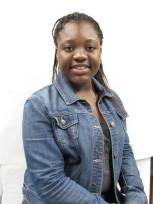Category Archives: college success
CCS on the Cambridge Chronicle: America has Been Granted a Spike Lee View
This article has been reposted from the Cambridge Chronicle website. The author, Tony Clark, is Cambridge Community Services’ College Success Program director and a 1994 graduate of Cambridge Rindge and Latin School.
In six months my son will celebrate his third birthday and show signs of prescribed growth and maturity. As his father, it is incumbent upon me, with the support of my wife, that we empower him to espouse his individuality and to think outside of the proverbial box while dreaming without limits. However, despite my newly recalibrated post-racial optimism, it is imperative that my son and millions of other boys of color in this great country are afforded these fundamental amenities with one polarizing caveat — listen, coddle and silence yourself, and you will be granted another day to dream again or will you?
We have watched, tweeted, Facebooked, Instagrammed and have engaged in heated debates about the multiethnic, multiracial, multigenerational acts of civil disobedience across the globe as a result of the egregious and senseless acts of police brutality coupled with the crippling news of the non-indictments in the Mike Brown and Eric Garner cases, further reinforcing the harsh historical truism that justice for the browner and marginalized segments of our country has been suffocated for years.
America has been granted a Spike Lee view to the grave disparities and inconsistencies of the criminal justice system while getting a dissertation in the pervasive and dysfunctional relationship between males of color, law enforcement and the hollow halls of justice. Today’s canvass, while unfortunate, lends an opportunity to actively and strategically engage young, vibrant and vigilant youthful leaders.
While touring the streets of Ferguson, Missouri, last week, I received a text message with a link to a Cambridge Chronicle article illuminating the acts of civil disobedience by the students of Cambridge Rindge and Latin — the school that I graduated from 20 years ago. The email was both nostalgic and numbing. In 1992, hundreds of my classmates and myself walked out of 459 Broadway and headed to City Hall to express our frustration about my generation’s front-row seat to a miscarriage of justice — the stunning Rodney King verdict. Unlike the Brown and Garner cases, the King case went to trial, giving many of us in the social justice communities a sense of faith, a feeling of inclusion and an unsubstantiated sense of security.
We were carelessly confident that we could take a deep breath, go to sleep and wake up to a slam-dunk guilty verdict. Conversely, we were awakened to the ghosts of Jim Crow. Once again, we were left breathless then and forced to find our asthma pumps once again.
As you read this, young boys of color are being instructed to govern themselves with a number of apartheid doctrines. They are being instructed to keep identification on their person at all times and to never assert themselves with law enforcement. My grandfather once told me, “Guard your tongue, get arrested, and live to see another day because they have a gun and you have your skin color, we’ll fight it later, son.” My 89-year-old grandfather’s advice is duly noted, however, it is becoming incredibly difficult to accept it because we have allegedly refined our perspectives of race in America and we should want to move the culture and shift the narrative for my son and his comrades.
As a bearer of justice, it is my duty to encourage the young people of CRLS and its recent graduates to explore their social-justice selves. We can no longer take the breath out of their ideas while shunning their penchant to ask the tough questions that will tilt the social-justice paradigm of our nation. Twenty-two years ago we began the conversation, but we failed to continue to breath life into the movement as a collective. We are a city of huge and powerful ideas and ingenuity; however, we remain a city of silos, which ultimately hinders our most valued asset: our youngsters.
The city of Cambridge has been an exemplar in many ways as it is pertains to neighborhood policing. Having traveled and worked in some of the most depressed and comprised communities in this country it is unequivocally clear that Cambridge’s law enforcement arm has done an admirable job. This does not devoid the urban legends that crimes, and more specifically murder cases, of brown victims disproportionately remain unsolved and under investigated.
We can know longer ignore that we have to embark upon courageous conversations followed by policy and legislation that allows my son and the sons of our community to walk as giants and not to shrink to the size of ants. It is time to engage young people in a constructive and deliberate manner that leads to future mayors, judges, teachers and law enforcement officials. The city is known for being a bastion for social justice and it needs to lead again by resituating life in its classrooms, its youth centers and on its street corners.





